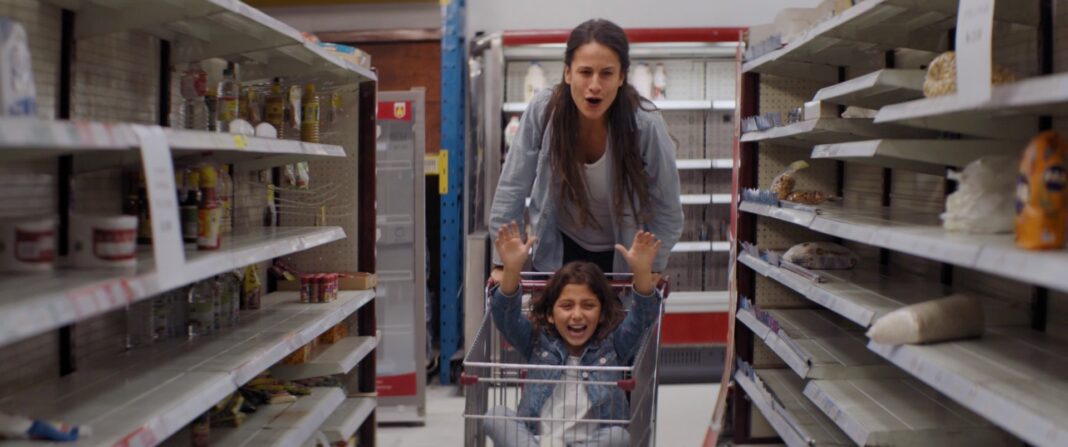The challenges that immigrants face when being deported come to the fore in Tiffany Kontoyiannis-Guillen’s short WELCOME BACK, which focuses on a mother and daughter returning to Venezuela after being in America for a time.
Film And TV Now spoke with the director about her film and the unique perspective on an timely and topical subject.
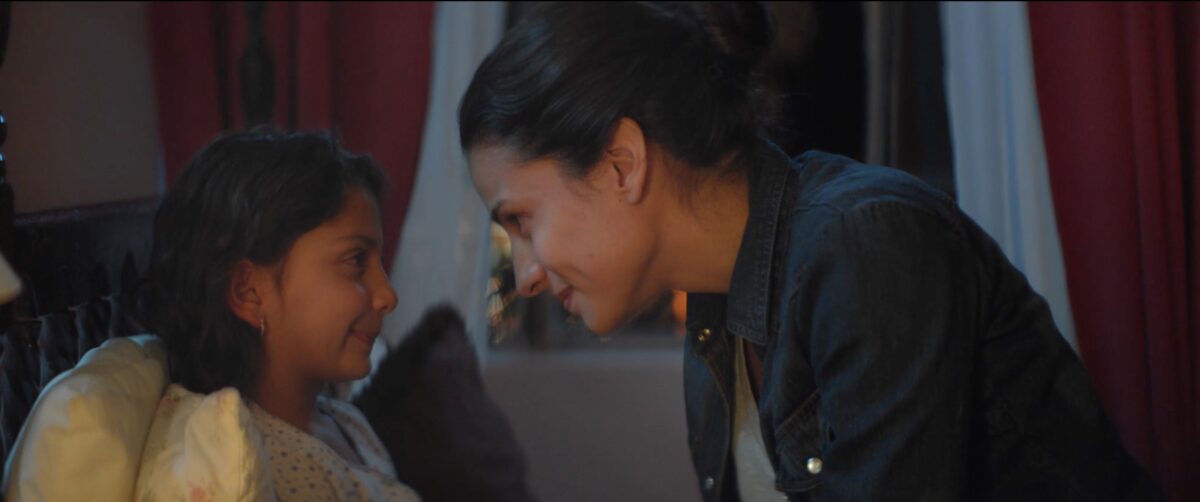
FILM AND TV NOW: What’s interesting about this short is that America is the start-off point rather than the goal and we get a sense of how significant it is for the daughter to speak in her mother’s native Spanish dialect to survive. What was the start-off point for the film?
TIFFANY KONTOYIANNIS-GUILLEN: Thanks so much for catching all that! Truth be told, the phrase, “Send them back to where they came from,” was a huge inspiration for our film.
As the daughter of two immigrants, with my entire family still living in Venezuela, it angered me when people didn’t understand that sending certain people back was the equivalent of a death sentence. We have seen and heard of so many stories of the sacrifices immigrants make to come here, that I believe people have become numb as to why they come here in the first place.
I began to realize that most films about immigration were about the journey to America, or families on the cusp of deportation; however, we rarely saw what happened once these immigrants got sent back.
So many of these stories include immigrants being sent back to countries where they don’t speak the language, or recall anything about it. It all seemed to heart-breaking to watch, so I truly wanted to incorporate this in Sophie’s character. Not to mention that speaking English in Venezuela would be extremely dangerous.
FTVN: We learn at the end of the short about the plight of Venezuelans and a different perspective on deportation. How much of a challenge was it to put this short together, in light of the fact that you are dealing with a sensitive subject in a volatile part of the world?
TKG: The short overall was definitely a challenge since it required so much production-wise in order to tell it authentically. Because we knew that this was a sensitive subject, and understood its urgency in today’s climate, it somehow pushed even more to get this right.
I didn’t want this to be just another story about deportation, but instead wanted to lend a perspective that we don’t often hear. In order to accomplish this level of authenticity it meant going the extra mile, both in our production and in the writing.
FTVN: Tell us about your cast.
TKG: This was perhaps the hardest part of the entire process since I had a lot of roles to cast for for this movie.
Carmen, played by Venezuelan actress, Diana Aboujian, was the first person we cast. For Carmen’s character, I wanted someone who was funny and charming in real life, yet could also authentically portray the profound pain Venezuelans feel everyday. Diana did an incredible job with this, and used her own experience to elevate the piece.
The hardest part of the casting process was finding Sophie and Rosa. For the role of Sophie, I was looking for a little girl who could speak both English and Spanish, and could handle emotional scenes and long hours. I didn’t have high expectations, and considered changing the script after several weeks of auditions.
Luckily, our reality far surpassed our expectations when we found Marina Lalama, who is perhaps one of the best actresses I have ever worked with. She was 8 years old, and it was her first time ever acting—she’s a prodigy. Finding her was a like winning the lottery.
Finding Rosa was also extremely hard. We saw what seemed to be hundreds of women from all over the world, after months of searching. We found Joselyn Gallardo just three weeks before production. She was unbelievably talented, attained the maternal essence we were looking for, and also seemed to truly understand the role.
She did such a beautiful job, one that I think brought true justice to the Venezuelan experience.
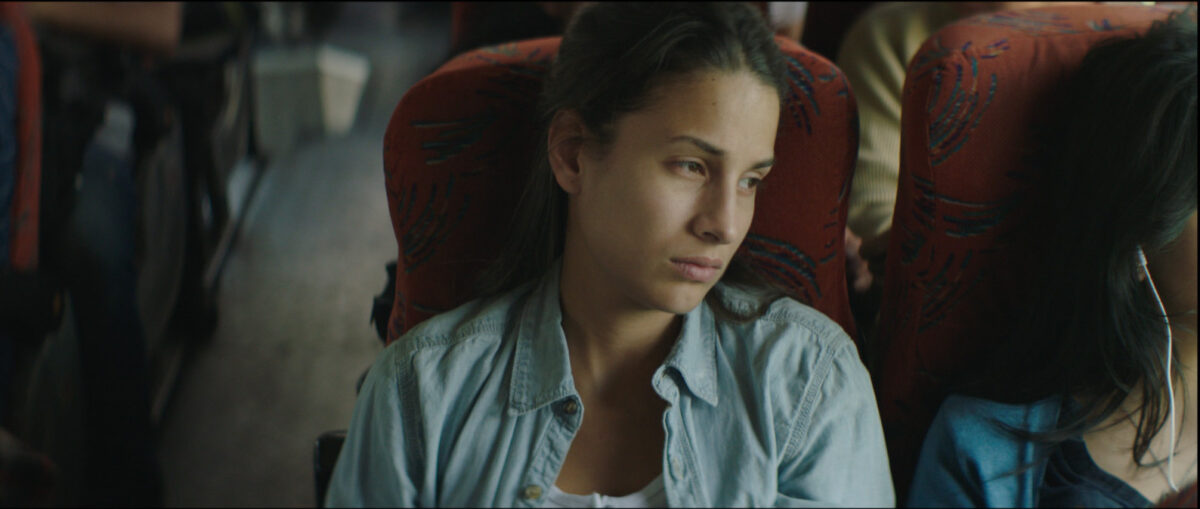
FTVN: Following on from that, how clear was the situation to the young actress playing the daughter and how did you guide her through what is clearly a very emotional experience for the character?
TKG: Marina is wise beyond her years. I think she completely understood what was going on, yet had this beautiful ability to shake it off in between takes. My biggest job was to remind her that this was “make believe,” and that although this was a reality for many, this was something she didn’t have to take home.
I remember when discussing the last scene, she asked me if Sophie would become an orphan. I nodded my head and said, “in a way, yes.” She then quickly responded, “Oh! So like Annie the musical. I know what to do.” She then nailed the scene, and immediately smiled when I called cut. She did a great job at finding her way into the role on her own. I was just there to explore that with her.
FTVN: Has the film been shown to human rights organisations like Amnesty International?
TKG: Not yet, but I’m hoping to do so in the future!
FTVN: Additionally, are there hopes to show it to schools and universities as a point of reference for students who want to understand the context of countries torn apart by unrest like Venezuela?
TKG: This is definitely a goal of ours, and have been talking to a few schools about doing screenings in the future!
FTVN: Tell us about your production team.
TKG: Our production team was one of the best I’ve ever worked with. We shot in two countries, with both an American and Ecuadorian crew. Part of our crew flew to Ecuador to shoot with us, and it was so wonderful to see the different cultures work together to tell this story.
One of my favorite aspects, which we noticed afterwards, was that all of our department heads were primarily women. Being on set was inspiring, with each crew member exponentially elevating the piece with their talents.
Roy Arwas and Karly Perez-Arevalo, my producers, did an incredible job of unifying all of us, and truly were the engines behind this production.
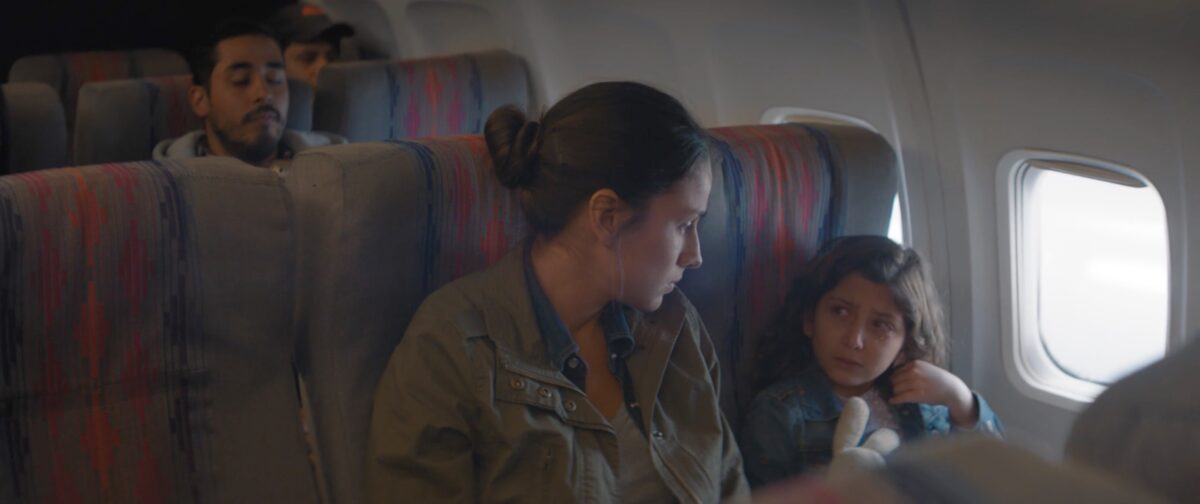
FTVN: The threat of violence is never far away, but you were remarkably restrained in your approach to it in this short. How difficult was the scene in the flat with the gun to shoot?
TKG: That scene was quite difficult for several reasons. We had lost that location earlier that day, and had three hours to find a new one, so were off to a rocky start. Once we began shooting, I worked heavily with the actors to ensure the threat of violence seemed both authentic and real.
The intention of these scene was to explore how a lot of the violence in these countries stems from a place of desperation. Overall, the violence in the country is a systemic issue, turning its own people against each other who are all struggling survive.
FTVN: You focus on diverse subjects and highlighting ‘Latino, female and unique stories with hopes to diversifying the industry further’. What are your immediate and long-term goals in this?
TKG: Although there has been tremendous improvement in diversifying the industry, there is still a long way to go. Personally, my immediate goal is truly rooted in creating and participating in anyway I can. I have come to realize how essential our voices and presence are when fighting for diversity, and use this as a reminder that quitting is never an option.
With that, I hope that I can see the day where television and film accurately portray the world we live in—a melting pot of cultures, backgrounds, and beliefs. #
My hope is that I can contribute by lending a voice to those who can’t speak, and shining a light on those who feel unseen. I spent a large part of my life feeling both unheard and unseen when watching television and film, and hope I can help change this for the generations to come.
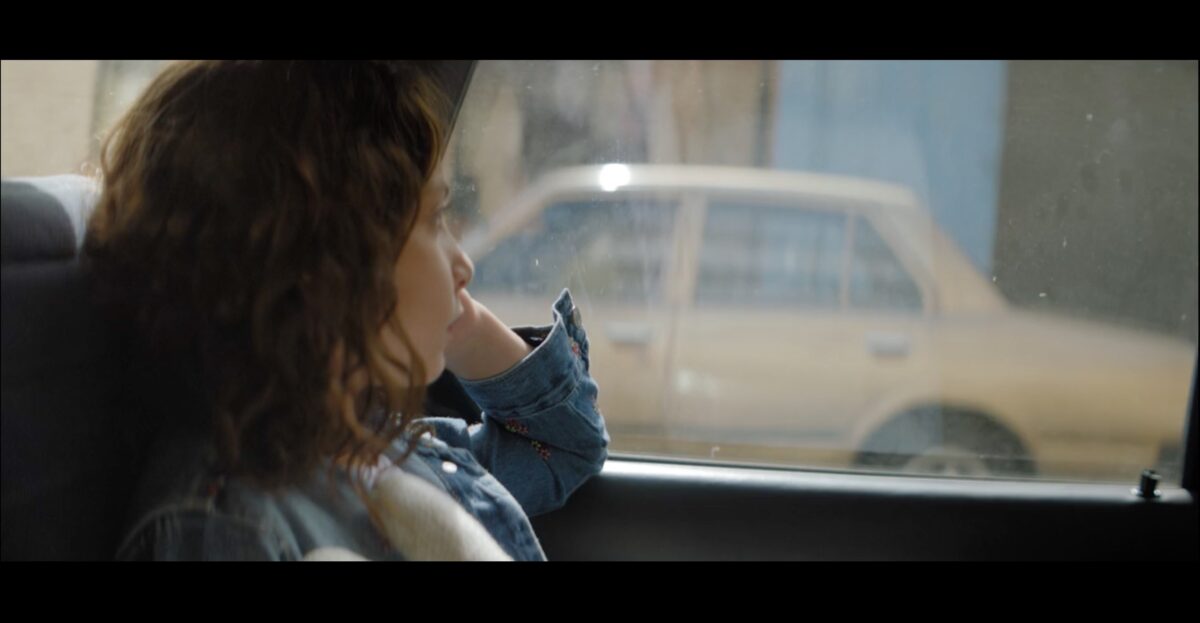
FTVN: The mimed wiping of a tear is the symbolism that runs through the film between the mother and daughter throughout their journey. What symbolism in other ways do you feel the film represents to you?
TKG: The wiping of the tear was extremely personal to me. It is something my fiancé and producer, Roy Arwas, used to always do when we wanted to say “I love you,” in public. It was our secret code, which I totally ruined now.
I put a lot of personal touches all over this film, with so many references to my life and experiences. Perhaps the most notable moment is the scene in the supermarket, where Rosa plays a game to distract her daughter from the difficulty surrounding them.
This was inspired by my parents, who would often play games to drive my attention away from the struggles we were facing. They had this whole, “life is beautiful,” approach to their parenting, and it really is something that I carry with me to this day. Rosa and Sophia’s relationship is very much an homage to my parents and their unconditional love.
FTVN: How long did it take to shoot and where did you shoot?
TKG: Overall it took about 12 days to shoot, in two countries. We shot in Los Angeles and Quito, Ecuador.
FTVN: How has COVID-19 affected your creativity and evolution as a film-maker?
TKG: During this difficult time, I’m doing my best to channel any anxiety and unrest into my writing. The only upside to this quarantine has been the ability to refocus on what matters, which has definitely been helpful for my creativity!
FTVN: Finally, what are you most proud of about WELCOME BACK?
TKG: I think the thing I’m proudest of was that despite how impossible it seemed, we were able to bring this story to life. After releasing this film, we have received so much love and support from around the world, from Venezuelans who are so proud of the film, to a variety of viewers who say this film changed their perspective. Knowing that this struck a chord, while feeling authentic to the Venezuelans who watched it, is all I had hoped for.


